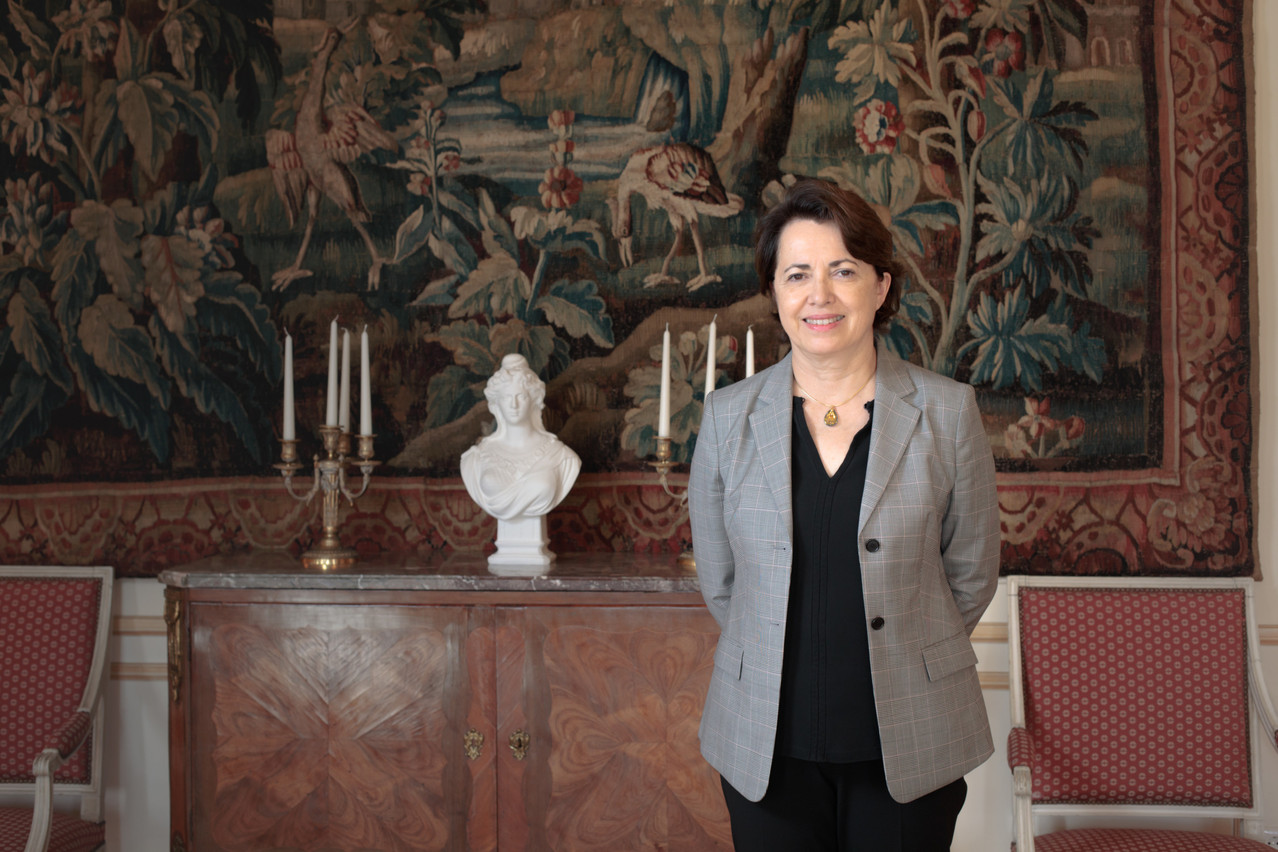Cordula Schnuer: Emmanuel Macron was re-elected president on 24 April. What does this mean for your work at the embassy? I imagine there’s a sense of continuity.
Claire Lignières-Counathe: He’s a president we’re familiar with. There is no direct change in the work at our embassy. Still, the president himself has said that he is starting a new mandate, so there will be decisions and avenues taken that will have an impact on the work of this embassy and the others.
France held the EU council presidency for the first half of this year. To what extent has the war in Ukraine overshadowed the programme?
Our red thread across the presidency has been European sovereignty. What’s happening in Ukraine must prompt us even more than we previously thought to fight for this sovereignty and to ensure that the EU has the tools to be the master of its destiny and choices. The crisis in Ukraine has also shown us once again how dependent we are on the outside world, especially for energy. The situation hasn’t diverted us from our priorities but reinforced them.
When it comes to energy independence, there is disagreement between Luxembourg and France on nuclear energy being a solution. Do you see any possibility of compromise on this issue?
There is the taxonomy, which includes energies that are necessary for the green transition. It’s not a French position. It’s the position given by the European Commission after consultation with numerous experts. Luxembourg’s position is different. We agree with Luxembourg and our other European partners that we must also develop renewable energies.
One doesn’t rule out the other. But France has a substantial nuclear park and will invest in this area because we think it’s an energy that we need to decarbonise our economies.
In what areas has Luxembourg supported France during its council presidency?
We don’t agree 100% on everything. That’s normal, but we’re frequently very close, for example when discussing the big priorities, such as the Fit for 55 package and the Carbon Border Adjustment Mechanism. We reached agreement on the Digital Services Act and the Digital Markets Act. For Luxembourg these were also important. On questions of defence and sovereignty, we’re on the same page. But also on social questions, such as the adequate minimum wage, we have the support of Luxembourg. There are many others. We are partners who trust each other.
Crises have the potential to createdivision or unity. During the pandemic, for example, we saw border closures, but also cross-border medical support. Where does French-Luxembourg friendship stand as this next crisis unfolds?
The European Union is facing a serious crisis. It is just coming out of another crisis--the pandemic. A few years ago, there was the financial crisis. It’s often the opportunity to make progress. Bilateral relations are trusting and very active. We have a discussion forum on cross-border questions, such as transport, healthcare, professional training, police cooperation... The links are close and always getting tighter.
Before the pandemic, however, there were calls by Metz for Luxembourg to pay compensation for income tax paid by cross-border workers in the grand duchy and not at home…
What we’ve agreed on is a system of co-development and co-financing. We pay together for projects, for example in transport, such as rail. We co-finance projects that are useful for both countries and are linked to this cross-border movement.
